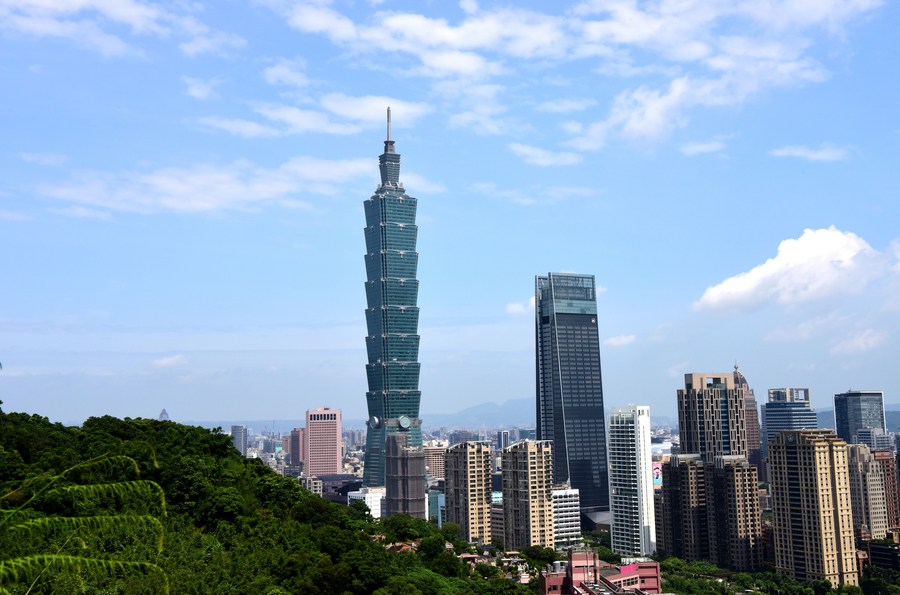White paper gives clarity to reunification
 Photo taken on July 21, 2019 shows the Taipei 101 skyscraper in Taipei, China's Taiwan. [Photo/Xinhua]
Photo taken on July 21, 2019 shows the Taipei 101 skyscraper in Taipei, China's Taiwan. [Photo/Xinhua]
Scholar: Taiwan compatriots can join in the design of the future solution
The recently published white paper clearly demonstrates the prospects of peaceful reunification of the two sides of the Taiwan Straits under the principle of "one country, two systems", experts said.
They made the remarks at a think tank forum concerning China's reunification in the new era, which was organized by the Institute of Taiwan Studies of the Chinese Academy of Social Sciences on Friday in Beijing.
The forum came after the white paper published on Wednesday by the Taiwan Affairs Office of the State Council and the State Council Information Office offered a systematic elaboration of the principles and policies put forward by the Communist Party of China and the Chinese government in advancing national reunification.
Li Yihu, head of Peking University's Taiwan Institute, said the new document reaffirms the mainland's basic principles of national reunification by peaceful means and "one country, two systems".
Amid recent discussions overseas about the possibility of using force to solve the Taiwan question, the white paper, of the highest authority, reiterates the mainland's position, saying that peaceful reunification is "the first choice", Li said.
The white paper also conveys the message that the letter and spirit of the "one country, two systems" solution for Taiwan needs exploration and construction, which can be gradually enriched in the process of discussion, consultation and exploration between the two sides of the Taiwan Straits, he added.
"It's an important signal to Taiwan society that democratic consultation can be conducted between the two sides based on the one-China principle, and Taiwan can join in the design of the future solution," Li said.
More innovative measures will be taken to create favorable conditions for reunification, Li said, as it is written in the white paper that the mainland will set up a pilot zone for integrated cross-Straits development in Fujian province, the closest mainland province to Taiwan, to advance integration through better connectivity and more preferential policies.
Considering the vast space for Taiwan's development, the white paper said, and backed by the vast mainland market, Taiwan's economy will enjoy broader prospects, become more competitive and develop in a more steady fashion.
Many problems that have long afflicted Taiwan's economy and its people can be resolved through integrated cross-Straits development with all possible connectivity between the two sides, it said, adding that Taiwan's fiscal revenue can be better employed to improve living standards, bringing real benefits to the people and resolving their difficulties.
Zhang Hua, a researcher with the Taiwan Studies Institute of the CASS, said one highlight of the white paper is that it uses a whole chapter to lay out a brighter future after peaceful reunification of the two sides.
The descriptions of the prospects after reunification are meant to reassure Taiwan and the international community. "It shows that the peaceful reunification of the two sides will benefit Taiwan's economic and social development, cross-Straits development and the international community," he said.
Yang Yizhou, vice-chairman of the All-China Federation of Taiwan Compatriots, said the white paper illustrates in detail the bright prospects of reunification, with the aim that Taiwan compatriots can understand the benefits of reunification and move forward to promote reunification of the motherland.
"We firmly believe that with the development of cross-Straits relations, the 'one country, two systems' Taiwan solution will finally be understood and accepted by Taiwan compatriots," he said.